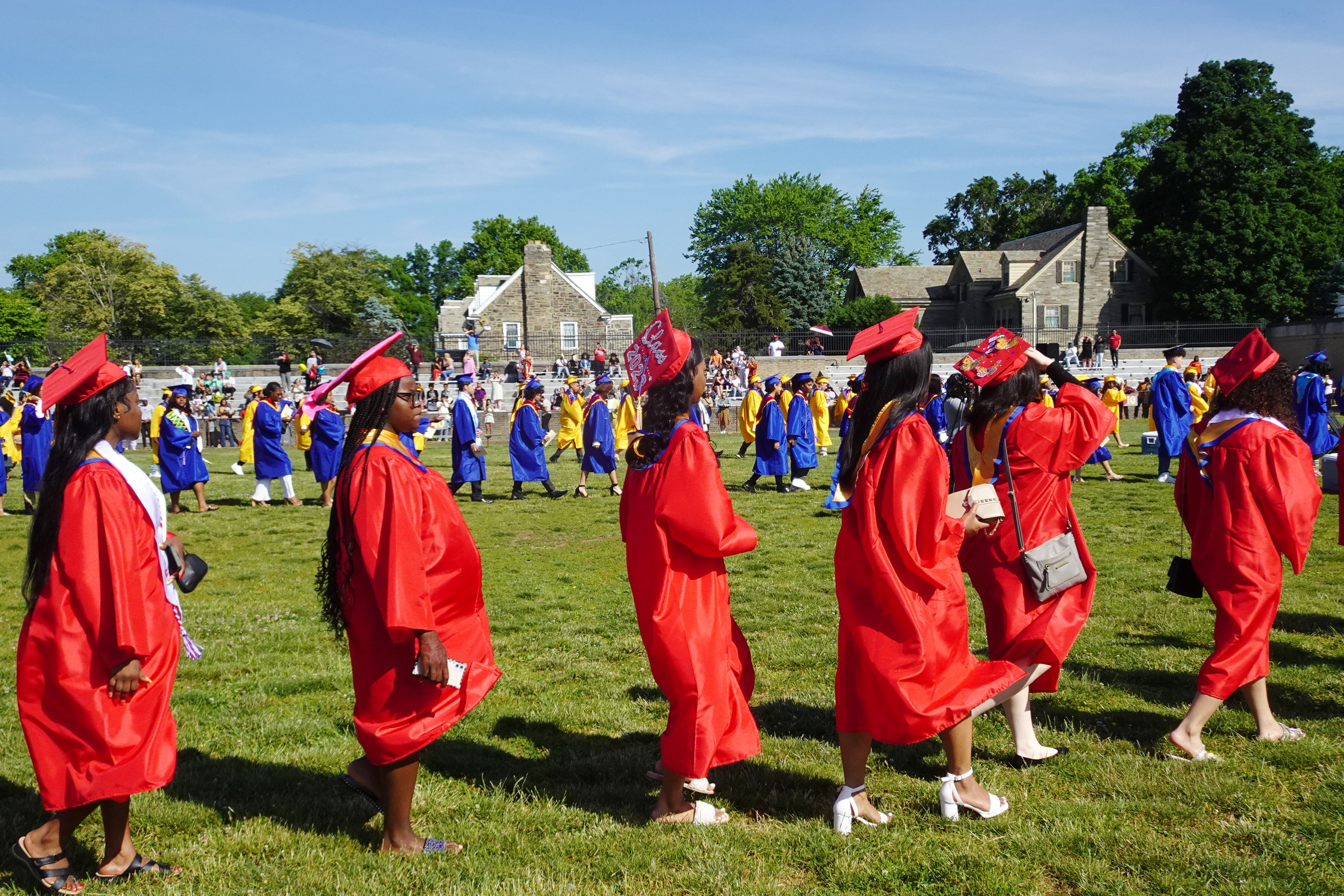Sign up for Chalkbeat Philadelphia’s free newsletter to keep up with the city’s public school system.
At the end of each school year, school officials in Philadelphia ask graduating seniors what they plan to do after high school.
Thousands report that they plan to go to college.
But when the fall rolls around, hundreds of those students do not end up matriculating in a postsecondary program, according to a new report from the School District of Philadelphia.
District data shows that the phenomenon, called “summer melt,” has increased in recent years. In the Class of 2024, 40% of students who initially planned to go to college did not follow through on their plans, according to the district’s research, marking an increase of 10 percentage points from 2016.
In the report, district researchers say that’s important information for guidance counselors, school leaders, and college readiness partners to be aware of as they support students in completing tasks required for college matriculation.
But a major challenge, according to some advocates, is that the requirements and costs of matriculation can overwhelm students over the summer when they lose many of their school-based supports.
“There’s just so many young people that say, ‘This is way too much work,’ and it is … it’s an absurd amount of work,” said Bryan DeFoney, vice president of programs at the Philadelphia Education Fund. “If you have never navigated this, it feels like a Herculean task for a young person to complete.”
Around 44% of Philadelphia high school seniors in the Class of 2024 matriculated at a postsecondary institution last fall, according to district data.
DeFoney oversees federally funded programs in several public Philadelphia high schools that help support students to graduate and access postsecondary education. In his work with teens, he said he’s seen students who are initially interested in attaining a degree after high school get frustrated by the bureaucratic hoops they must jump through over the summer, or choose instead to work fulltime.
Problems with the financial aid system during the past two years have added to those challenges, DeFoney said. Since the pandemic, he said he has also noticed fewer students are interested in going to college.
“The entire tone around the college-going culture has just shifted, because school became optional for a lot of young people,” DeFoney said. “Part of our work is we try to help families and students understand why that investment is still worth it.”
The Philadelphia district’s analysis found that students who were male, English learners, or receiving special education services were more likely not to go to college after graduation even though they said they intended to.
Students who intended to matriculate at a four-year college were consistently more likely to matriculate than those intending to attend community colleges or other two-year institutions.
Nationally, between 10% and 40% of students who aim to enroll in college do not immediately do so after graduation, according to research from the Harvard Center for Education Policy Research.
Rebecca Redelmeier is a reporter at Chalkbeat Philadelphia. She writes about public schools, early childhood education, and issues that impact students, families, and educators across Philadelphia. Contact Rebecca at rredelmeier@chalkbeat.org.





